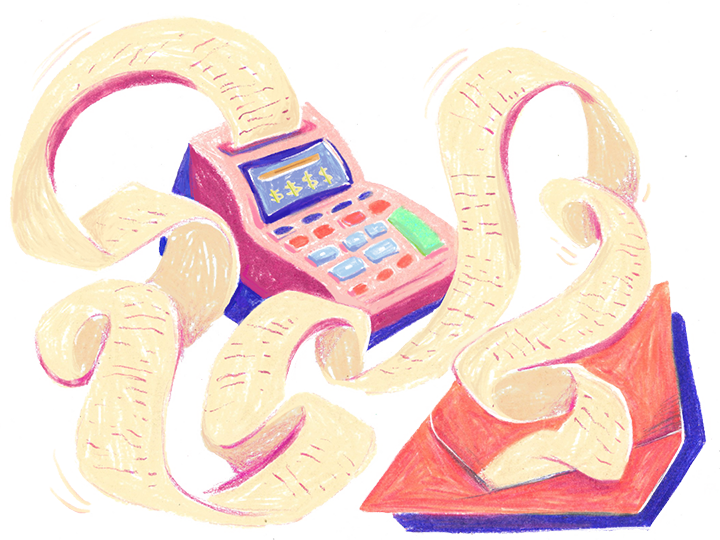

How Does the Cash Envelope System Work?
Envelope budgeting helps you keep track of both income and expenses. The idea behind an envelope budget system is pretty straightforward—a paycheck is cashed and divided up into a variety of cash envelope categories. Whenever money is needed for a particular cost, the necessary amount is taken out of the appropriate envelope.
Once the budget envelopes are empty, that’s it, the limit is reached and there's no more money to spend—you either don’t make any more purchases or you have to borrow from another category. This motivates the idea of keeping to a budget by helping you visualize the money you’re spending/receiving and holding you accountable for breaking the budget. Also, with the cash envelope system, there’s no way to be in the negative.

How Does the Digital Envelope System Work?
While the cash-only approach can be beneficial, it has some pretty obvious drawbacks—relying on cash as your main spending method can be inconvenient. Similarly, leaving hundreds or perhaps thousands of dollars around your house to use for budgeting isn’t the safest method for storing your money.
A digital cash envelope system is safer and can be created with a bank or an app. Though some budgeting apps cost money, it’s likely a bank or credit union will have an inexpensive or free budgeting option. This could mean putting your money into multiple bank accounts, only using certain cards for certain expenses, or dividing it up in a spreadsheet or other method.
Cash Envelope System vs. Digital Envelope System
Using physical cash to buy things makes it less likely to spend frivolously. While it may be too difficult to use cash for an entire budget, it can be helpful when looking to cut spending in just one particular area. Digital cash eliminates the worry of carrying and organizing a bulky amount of cash, but sticking to the budget could be more challenging. Once someone has calculated their budget, they should see which system works best depending on their own habits. Each system works—the efficiency of each just differs from person to person.

What Envelope System Categories Should I Use?
The only way to know which envelope categories are best for you is to analyze your expenses, organize those expenses into specific groupings, and create a budget. Use the groupings found while creating your budget to determine how your envelopes should be labeled. To help get you started, here is a list of some general categories—only use what suits your financial needs.
- Groceries
- Entertainment
- Transportation
- Medical Expenses
- Emergencies
- Dining Out
- Clothing
- Haircuts/Beauty
- Random Spending
- Vacation
- Housing
- Debt Payoff
The most important aspect of envelope budgeting is that it makes you examine your current financial habits and stick to a budget. Armed with a plan, you too can make a real difference in your budget and make your money work for you. Feel free to use the calculator below to calculate your budget.
Neither Banzai nor its sponsoring partners make any warranties or representations as to the accuracy, applicability, completeness, or suitability for any particular purpose of the information contained herein. Banzai and its sponsoring partners expressly disclaim any liability arising from the use or misuse of these materials and, by visiting this site, you agree to release Banzai and its sponsoring partners from any such liability. Do not rely upon the information provided in this content when making decisions regarding financial or legal matters without first consulting with a qualified, licensed professional.

